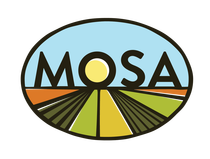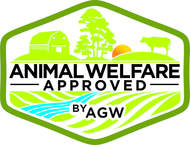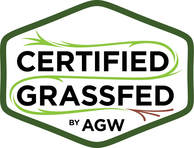|
Finishing in Fall/Winter.
This is our 9th year since buying the farm and our 6th year in operations. Every year we improve, learn, and do things better. For the last few years we have been able to narrow our calving season between April- June and our harvest season late Fall/early winter. This year we have a few harvest dates in November, most in December, and some more will be in January/February 2022 (we are only opening 2021 for now). With this in mind, we have (successfully) been working to extend our grazing season to mid December. It's been nice to see our December harvest finish in fresh grass! When grazing season is over though, we have been separating our finishers from the rest of the herd to give them a different quality feed. Our best, high carbohydrate feed goes to them (also an "all you can eat buffet"!) and we have been very successful at finishing these animals in the early winter months on grass and our best quality hay. Choose Your Processor. We use 2 processors for our beef and pork- Lake Geneva Country Meats and Wilson Farm Meats. We have good relationships with both and have been very happy with their work and service to our customers. However, we know some of you prefer one and others prefer the other, for different reasons, so we now have a "drop down" menu to select the harvest date AND processor. Keep in mind! you need to add 2-3 weeks to that harvest date to figure out when your beef will actually be ready! Request a Size. When we harvest, we usually bring 2 or more animals at a time. While we make sure our animals are well finished for processing, some animals are just genetically bigger than others. Some customers have smaller families and want less beef, and others want more, so this year we would like for you to notify us in our COMMENTS box when making your reservation if you want BIG or SMALL. When the processor gives us the hanging weights we can then try to accommodate our customers preference for more or less beef. If you have bought from us in the past, you can even let us know if you were satisfied with your last amount or want more/less. I can look back at the hanging weight you had and go from there. While this is not a guarantee, it will help us better assign harvested animals to customers based on their needs. It also may be that you are ordering a half instead of a quarter but want a "small half" so you are not overwhelmed by too much beef. Pricing Changes (Tier-pricing). We've been selling in bulk now for about 6 years with the same pricing. Unfortunately, everything else has gone up! This year, we needed to slightly increase the price per hanging weight pound, but decided to now offer "tier pricing". What this means is that if you buy a whole beef you get the same old price of $4.95/lb, for a half side beef $5.25/lb, and for a quarter side $5.50/lb. Of course, you can get creative and economical by buying with a friend, family member, or neighbor, but we request we only deal with one person for payment and communication and the processor will also get the cutting instructions from this one person, even if you are dividing it with others, so please arrange accordingly! That's it! We will work hard in the coming months to use the best grazing management for healthy grasses, healthy soil, and best finishing for our animals. Thank you for your continued support!
0 Comments
I may disappoint you with this, but I won’t be citing a bunch of research studies in this post. You can Google away and find 100 research studies supporting plant-based diets as best, and another 100 saying meat is no harm to human health.
I will, however, give you my takeaway from having studied this topic extensively for the last 10+ years- through nutrition school, books, research studies, articles, doctors, scientists, podcasts, documentaries, personal experience, customers… you name it! Before I even talk about the headlines and the studies, I want to state 3 things about meat I feel very confident about after all my research and studies.
My belief is quality over quantity. I absolutely agree that many of us should be eating less meat and more plants (and yes, that would still be a “plant-based” diet!). Consider this:
But what about all those recent headlines saying a vegan diet is best for our health? First of all, how many of us are reading beyond the news article? or worse, the headline? or even worse, the social media post or meme?!?! When you dig in, you find there’s a few issues many scientists and doctors have found with nutritional studies, especially in the plant-based vs meat studies. #1- Funding I’ll start with this basic issue, and unfortunately, this is not limited to nutritional studies. Who is funding the study you are reading? There are many studies these days funded by corporations and private entities with a profit agenda in play, and this, of course, will skew results. The Vegan Foods and now Lab Meats market is growing rapidly! Think of it- with climate change concerns, exposure to the atrocities of CAFOs, and more regulation on them to farm cleaner, it is becoming more expensive for these big companies to produce cheap meat, so they are getting ahead of the game! Fake Meats as the future! They are way cheaper to produce (and definitely cleaner than CAFOs!). , and because they are perceived as “healthy” foods they can charge a premium. Win-win! #2- Observational Studies and the Healthy-user bias When people read about a research study, we have to pay attention to how the study was designed to understand the quality of the findings. Randomized controlled trials (RCTs) are considered the gold standard for clinical research. They have a high impact on clinical guidelines and on healthcare in general, but these are extremely difficult to produce and rare in food and dietary studies. The majority of nutritional research studies are what’s called Observational studies. These are ones where researchers look at a certain group of people and try to draw inferences from their behavior about associations with a disease. These studies are considered low quality research studies. Observational studies were actually never meant to prove a hypothesis, they were meant to generate a hypothesis! The tool used to collect data in observational studies is often a questionnaire, which is extremely weak since people’s memory is not precise and accurate when it comes to what we eat, and we tend to underreport calories and foods consumed. The other problem with nutritional studies is something called “the healthy user bias”. On the topic of plant based vs. meat, observational studies don’t consider anything else in the diet or furthermore, in lifestyle! It is meat vs. no meat. In general, the majority of vegans and vegetarians #1- eat more fruits and vegetables #2 shop at health food stores and #3 have a healthier lifestyle when compared with the GENERAL meat eater. And this is my beef with that! Not all meat eaters are the same. For example, there’s a huge body of plant based supportive studies that have studied Seventh Day Adventists, but SDAs overall diets and lifestyle are healthier. It is part of their religion! So yes, compared to the fast-food eating, smoker, drinker omnivore, hands down plant-based diet will give you a better result. On the other token, studies have shown that, because red meat has been perceived as “unhealthy” for so many years, people who eat more red meat are more likely to smoke, be physically inactive, and eat fewer fruits and vegetables. So, one of the inevitable results of the healthy-user bias is that many observational studies end up comparing two groups of people that are not at all similar, and this casts doubt on the findings. Correlation vs. causation. #3- A Reductionist Approach This doesn’t only apply to research studies, but also to the way we are viewing diets in general and even medicine. Philosopher Gyorgy Scrinis came up with the term “nutritionism,” which he defines as: “the reductive approach of understanding food only in terms of nutrients, food components, or biomarkers—like saturated fats, calories, glycemic index—abstracted out of the context of foods, diets, and bodily processes.” In other words, it’s a focus on the quantity of certain foods (like red meat) or macronutrients (like fat or carbohydrate), rather than the quality of the overall diet pattern. This has led some prominent epidemiologists like Stanford professor John Ioannidis to heavily criticize observational nutrition research. In a famous paper called “Why Most Published Research Findings Are False,” Ioannidis points out that “claimed research findings may often be simply accurate measures of the prevailing bias.” Now, besides most of the studies been flawed, here are some issues I find with vegan diets, especially. Is it elitist? Some critics of vegan diets state that the diet is “elitist” as it requires monitoring of nutrient levels, expensive supplementation, and of course, to be a healthy vegan and even vegetarian diet it has to be done properly. Many doctors and Hollywood celebrities’ proponents of the diet have the ability to afford all this testing, supplementation, and healthy eating (heck, some have personal chefs cooking for them!) but when it comes to feeding the general population, meat will provide much more nutrition for the buck than that of plants + supplements + medical monitoring. Supplementation Needs. When studying nutrition, I remember there was always a caveat with plant-based diets- you may need supplementation. Some nutrients are just not at all available (or too small in amounts) in plants, period. A vegetarian diet does have the advantage of allowing animal products like dairy and eggs, but vegan diets definitely need supplementation. We also always learned the best diet is one found in foods, not supplements. I am not against supplements, these can be very helpful, especially in therapeutic use, but if we are healthy and are eating high quality whole (unprocessed) foods, we shouldn’t need an ongoing daily vitamin to be healthy. To me, it just isn’t natural. My Conclusion? What to do? Unfortunately, there is no short answer and no “one size fits all” when it comes to eating meat or not. I don’t believe in “either/or’s” and don’t think this reductionist approach of eliminating certain foods or macronutrients is good. Having said that, there are extremes in the pendulum of how much meat we need. For the general population, I know we need to eat less of it and when we do, it has to be better quality. However, I know from experience, that some people need more meat and some less. Its just in our nature, genetics, and health conditions. I see it in my own children. Kids are not conditioned to eating a certain way yet, so it is fascinating to observe their cravings. Our oldest daughter needs, craves, and loves meat, where my youngest is happy with oatmeal, yogurt and would honestly live on bread and dairy if I let her! Paul needs more carbs than I do. I need and thrive with more meat. So our pendulums are different, even in one’s family members. I also have customers with specific health conditions that thrive with more meat than plants. At least 5 of them are prior vegans or vegetarians that due to health issues have had to switch back to meat, others with Lyme disease or anemia, and others with autoimmune conditions. Are you called to or want to try vegan? I say go for it! Try it out! Many people don’t crave or need meat at all, or very, very little of it. I would suggest though, to do it with some professional help- be it by at dietician, nutritionist, or “nutritionally trained” doctor that can guide you and monitor your nutrient levels. There are well documented health risks to vegan diets that we shouldn't ignore- like anemia, increased risk of depression and anxiety, inhibition of zinc absorption, and overconsumption of carbohydrates leading to fatty liver and blood sugar deregulation, so you do have to be careful to be able to get all your needed nutrients. So, my conclusion in this whole topic is NO- you do not need to eliminate meat and animal products to be healthy. See and feel what works for you, and look at your overall diet. Add more plant foods. Eat better quality food. Exercise regularly. Drink more water. Sleep better, and manage your stress! Thanks for reading! Hope you learned something, and if you wish to leave a question, comment, counter argument, etc... please leave it in our post comments, I'd love to hear from you! Want to dig deeper? Here are a few resources to check out: A good (albeit long) podcast debate between a prominent Vegan cardiologist and a former vegan turned Paleo Functional Medicine practitioner. https://podcastnotes.org/joe-rogan-experience/kresser-kahn/ Red Meat and Cancer: https://www.ncbi.nlm.nih.gov/pubmed/21540747. A 2011 meta-analysis of 34 prospective studies on red meat and colorectal cancer concluded that the available data was insufficient to support an association between red meat intake and colorectal cancer. Red meat and Heart Disease: https://www.ncbi.nlm.nih.gov/pmc/articles/PMC2885952/. This meta-analysis that included more than 1.2 million participants found no association between the consumption of fresh, unprocessed red meat and the risk of coronary heart disease (CHD), stroke, or diabetes. https://www.ncbi.nlm.nih.gov/pubmed/26017245. This meta-analysis of 11 studies concluded that the scientific literature does not support the existence of a relationship between red meat intake and an increased risk of myocardial ischemia. https://www.ncbi.nlm.nih.gov/pubmed/8842068. This study assessed the relationship between dietary habits and mortality in vegetarians and omnivores who frequented health-food stores, based on the premise that health-food store shoppers would be more health-conscious, regardless of whether or not they ate meat. It was found that both vegetarians and health-conscious omnivores live longer than people in the general population and that there was no survival difference between vegetarians and omnivores. https://academic.oup.com/ajcn/article/89/5/1613S/4596950. In this study, vegetarians and their omnivorous friends and family (who were recruited with the assumption that they would be more health conscious than the general population) were followed for five to 10 years. The risk of death for vegetarians/vegans and health-conscious omnivores was 52 percent lower than the risk of death for the general population. There was no difference in mortality between vegetarians and omnivores. Chang-Claude J, Hermann S, Eilber U, Steindorf K. Lifestyle determinants and mortality in German vegetarians and health-conscious persons: results of a 21-year follow-up. Cancer Epidemiol Biomarkers Prev. 2005; 14(4):963–968. http://cebp.aacrjournals.org/content/14/4/963.long. The Heidelberg Study in Germany compared lifespan in health-conscious omnivores with vegetarians (a total of 2,000 participants). The risk of death for both vegetarians/vegans and omnivores was 59 percent lower than the risk of death for the general population. They found no difference in mortality between vegetarians and omnivores. The study found that a high level of physical activity was the greatest predictor of lifespan—independently of whether meat was consumed. https://www.sciencedirect.com/science/article/pii/S016752731401290X. A meta-analysis of studies comparing mortality in vegetarians/vegans and omnivores found no mortality benefit for vegetarians/vegans. It also concluded that any previous observed benefits were driven by Seventh Day Adventist studies, which are plagued with confounding variables. "Health risk factors associated with meat, fruit and vegetable consumption in cohort studies: A comprehensive meta-analysis." Long, but interesting. Read last paragraph of "Discussions". Last week we went to Central High School in Kenosha County to present to a Freshmen AP Geography class about Sustainable, Organic, and Regenerative Agriculture. It was super fun for Paul and I to talk to kids, who are the future of this country, about what is possible with Regenerative Ag. Something that is catching on in mainstream as a better, healthier way to farm for the environment and for our health.
After introducing ourselves and talking about who we are and what we do, we gave a background about the history of modern/industrial agriculture. Starting with "Old MacDonald", who use to do everything and integrated plants, crops, and a variety of animals, to industrialization bringing machinery, pesticides and fertilizers, specialization and "getting bigger" for efficiency. These were all things that were welcome by overworked farmers and actually did improve the lives and work of farmers at the time. However, nobody was able to foresee the consequences of these. Today, we know what these are- for our health and for the environment. Read about these in slides #16-#17. We then talked about what Organic farming, Animal Welfare, and additional certifications we pursued, given that organic standards have gotten relaxed (especially when it comes to animal welfare) once Big Ag got into it. Lastly, we talked about Regenerative Agriculture as a system of principles and practices that is not only "sustainable" but actually increases biodiversity, enriches soils, improves watersheds, and enhances ecosystem services. We talked about the importance of SOIL health. It ALL starts with healthy soil, something I found interesting and contrasting coming from a nutrition world when Hippocrates said "all disease begins in the gut". in human health, we have discovered most disease starts with an unhealthy gut. Similarly, we are now realizing, a healthy environment, and healthy food, starts with healthy soil. We explained the differences of grass fed vs. grain fed cows for beef and dairy. There are numerous health benefits of grass fed beef vs. grain fed, which includes less saturated and overall fat and more of the good fats like Omega 3s and CLA's in grass fed beef and dairy. We touched on the economics of farming, a sad reality of our broken food system that pays more for cheap, processed, and industrialized food than it does for "real food". It is more profitable for many farmers to grow commodity crops like soy and corn, sell them to the market where they get processed into your packaged food, and sold for very cheap at the store- than it is to grow healthier vegetables or pastured animals. Lastly, we provided a number of resources of local and some national organizations that have a wealth of information on these topics, and also some interesting books and documentaries we thought the kids (or anybody!) might like. At the end, we took in questions... with many very thoughtful and interesting questions coming from the kids. We welcome questions from you too! Please leave a comment, emil us, or contact us if you have any questions about anything you read in the presentation, what we do, or anything you'd like to ask us! We are happy to answer as best we can! Thanks for reading, and stay tuned for some more "educational" posts coming in the next few months. 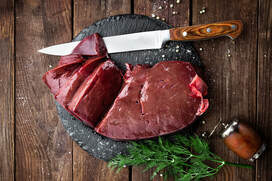 In the spirit of “new year, new you health resolutions”, I figured I’d talk about one of the healthiest products we have at our farm. Beef liver. Now hold on, don’t go… I know many of us didn’t grow up eating liver, and maybe you are disgusted by it (I was!), but I beg you to please stay with me and at least read the rest of this post. Health Benefits: While studying nutrition, I heard so much about the health benefits of beef liver- it was even sometimes called a “super food”! Interestingly, it was once a popular and treasured food source, but liver has fallen out of favor. This is unfortunate because liver is possibly one of the most nutrient-dense foods on the planet, and inexpensive too! It is rich in protein, low in calories, and packed with essential vitamins and minerals. People often look to fruits and vegetables for vitamins and minerals, but liver far surpasses them all in terms of nutrient content. A small amount of liver provides well over 100% of the RDI for many essential nutrients. Here are some nutrients found in a 3.5-ounce serving of beef liver:
How to Include Liver in Your Diet: I admit it, liver has a unique taste, which some people love, and others hate. I know it was tough for us to stomach it the first time we tried it, so I’ll give you that, BUT… here are some suggestions on how to include it in your diet and get these great nutrients:
Recipes to Try: While our recommended way to start eating liver is the "mince, freeze, and add to ground beef" method, here are a couple of good recipes if you want to try. This might be the best Liver and Onions Recipe we've found: http://ediblearia.com/2009/07/23/not-your-average-liver-and-onions/ Beef Liver Pate: https://autoimmunewellness.com/bacon-beef-liver-pate-with-rosemary-and-thyme/ P.S. Beef Heart has a much, much milder flavor than liver and has some of the same nutrients. It’s a lot like ground beef, but I would classify it as “sweeter.” Whereas you’d only add 1-2 cubes of liver to any dish, it’s pretty easy to add up to a quarter pound of heart to a pound of ground beef, even in grilled hamburgers! ***Both Beef Liver and Beef heart are FOR SALE on our web store- so give it a try and REALLY get healthy this new year!*** Last week a friend of ours reached out to us for beef. He has been very supportive of our farm business, but had never bought any of our meats. He had a “mild” heart attack and open-heart surgery some years ago and decided then to “go off beef” as much as possible . Whenever we get together with him we are always super sensitive to his disciplined eating routine of “no fat” and “no cholesterol”.
As you can imagine, it came as quite a surprise when he said he needed to buy some of our beef. His doctor told him he has too low cholesterol (yes, it's a thing!) and some anemia, and he recommended he started eating more beef. The good news was the doctor was clear in specifying - not just ANY beef, but GRASS FED beef! As we grow our farm business, we are encouraged to see the health benefits of pasture-raised animals become more mainstream. Mayo clinic says, Grass-fed beef may have some heart-health benefits that other types of beef don't have. When compared with other types of beef, grass-fed beef may have:
One of the first proponents of pasture base meats, Dr. Mercola, says, Conventionally raised beef can’t begin to compare with lifetime grazed 100% grass fed beef for health benefits. Here are just some of the ways grass fed beef is superior:
CLA has been shown in studies to provide important support for weight management, immune function, normal cell growth and normal blood sugar levels. Animals that graze on pasture have 300 to 400 percent more CLA than those fattened on grain in a feedlot. Once a cow begins to eat grains, it loses its ability to produce this valuable fat. Just one more compelling reason to choose grass fed! It really makes us feel good at Starry Nights Farm when we promote better health, it is part of our mission to deliver a delicious, healthy, and nutritious product to our customers. So have your cake and eat it too! Springtime at the farm is a busy time. We get ready to transition the cows from eating hay (that we harvested last year) to the new fresh grass that is growing in our pastures. One of the “dirty” jobs at the moment is to spread manure that built up during the winter over the fields (manure: a nice way of saying cow shit mixed with straw and hay). Coming from my previous career in finance, where I was a sales person, I feel right at home spreading the manure. In sales I could “shoot the shit”, “spread the shit”, and “bull shit” with the best of them, so how appropriate that I get to lay it on thick in our fields now! Some of you may be thinking it is disgusting, or ask why the heck do we do that?!?….. Well, I will try to answer those questions. Cow "caca", to organic/sustainable farmers, is brown gold! This dookie is what makes our sustainable business work. The dung increases the fertility on our land. It adds organic material (humus) to the soil, which helps buffer the drying effects on soil during a drought by holding more water, essentially becoming a sponge. Unlike conventional farmers, we don’t have to use chemicals to fertilize our farm. The manure provides the food for our plants, animals, and the other micro organisms (fungi, bacteria, earth worms, insects and many other invertebrates) that work in our circle of life environment. It’s a cycle of birth, growth, plateau, decline, death, decomposition/decay, and rebirth. Nature rules! She uses everything by recycling it, making our soil rich and full of life. The cows give our farm an advantage, we are able to close our farm to any outside inputs. We create a closed circle where the soil, plants, and animals work together and continue to build soil health. Through this interaction we have a diverse set of nutrients and micronutrients in our soils, and by that in the food we produce. Soil scientist J.I. Rodale said it best, “ Healthy soil, healthy food, healthy people.” Farming is a humbling endeavor. We have no control over Mother Nature, she has the final say. It is humbling working with cow pies, but it is so important to being sustainable. And think about how many different words we have for crap… when a word has that many synonyms, it has to be important! Changing my kids diapers and now having cows, I am over my poop phobia! With my new perspective as an organic/sustainable farmer, I like it when someone says, “have a shitty day!“ |
AuthorMarisa usually writes about nutrition, grass fed beef, organic agriculture, as well as sharing delicious recipes; Paul writes about farm work- sharing his stories and experiences, and most times... we both collaborate on the stories! Archives
March 2024
Categories
All
|
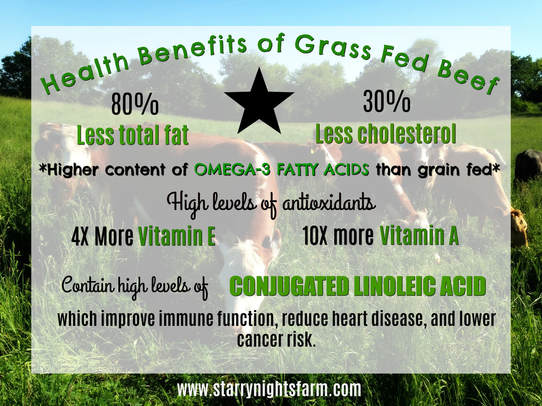
 RSS Feed
RSS Feed
